Literary rating: ★★★★
Kick-butt quotient: ☆☆☆½
“They seem like nice enough boys, but they haven’t the hunger my ladies do. That can’t be taught or disciplined into anyone. It comes from decades of being told we can’t do a thing while knowing we can. They’ll never have that.”
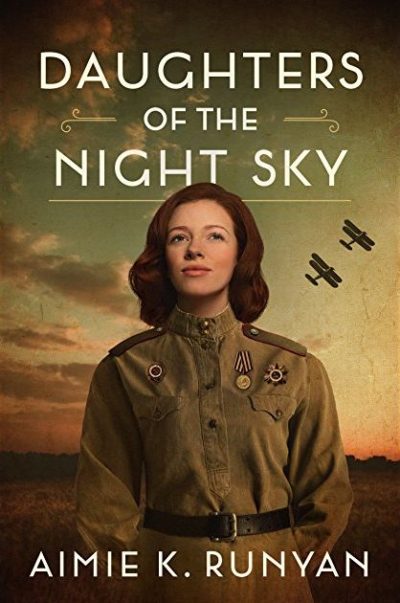 No army in recent military history has made more use of women than the Soviets during World War 2. As we’ve already covered, they operated on the front lines in positions ranging from sniper to tank commander. But few of their stories have ever been covered in any depth. This book aims to redress that balance, at least somewhat. While the characters in this are fictional, the 588th Night Bomber Regiment, comprised entirely of woman, did exist. It flew bombing and harassment missions of German forces, using extremely light aircraft, so slow the German fighter planes were unable to follow them without stalling. Their tactic of cutting their engines before beginning their bombing run, allowing them to arrive in silence, helped earn the regiment the nickname from the Nazi soldiers of “nachthexen” – Night Witches.
No army in recent military history has made more use of women than the Soviets during World War 2. As we’ve already covered, they operated on the front lines in positions ranging from sniper to tank commander. But few of their stories have ever been covered in any depth. This book aims to redress that balance, at least somewhat. While the characters in this are fictional, the 588th Night Bomber Regiment, comprised entirely of woman, did exist. It flew bombing and harassment missions of German forces, using extremely light aircraft, so slow the German fighter planes were unable to follow them without stalling. Their tactic of cutting their engines before beginning their bombing run, allowing them to arrive in silence, helped earn the regiment the nickname from the Nazi soldiers of “nachthexen” – Night Witches.
The heroine here is Ekaterina Ivanova, known as Katya. She has always had an interest in flying, dreaming of it as an escape from her rural home. But the opportunity arrives in 1941, with Hitler’s army massing on the border, and she is one of the few female recruits allowed to train at the Chelyabinsk Military Aviation School. It’s not easy: she has to overcome the doubts, not just of the trainers, but her fellow cadets. As Katya puts it, “We have to be the best. Not just good… We need to fly more missions than the men. We have to be more efficient than they are. We can’t be excellent. We need to be exemplary.” There, she meets and falls in love with fellow trainee, Vanya Soloneva: the two quickly marry, but are just as soon separated, as the Nazis roll into Russia. Katya joins other women pilots, navigators, armorers and engineers in the 588th, under the command of record-breaking aviatrix Sofia Orlova. But will she and Vanya survive the battles to come?
Even if wholly fictional, it still offers what feels like a credible insight into the time, as well as the hell which was World War II. The mortality rate here is fearsome, almost approaching Game of Thrones level: I’d recommend not getting too attached to any of the characters, because… you never know. The story is told in first-person perspective, which allows you to get right inside Katya’s head and see the world through her concerns, doubts and hopes. But her colleague, Oksana, is perhaps the most poignant character: she suffered a devastating personal loss, yet found a way to carry on and serve her country. I was initially somewhat concerned the Katya/Vanya romance would overwhelm the main narrative. However, Runyan reins it back in, after some early scenes are noticeably overcooked, with her heroine simply not having time to start out the window and sigh plaintively. However, I do have to dock some points for an ending apparently lifted wholesale from A League of Their Own, right down to the women bursting into song: fortunately, it is missing any Madonna warbling.
Otherwise, however, there are very few mis-steps here. It’s an engrossing story, populated by very human characters, who behave in ways that generally seem convincing. Even Katya, at one point, tries to escape the horrors of the front-line with Vanya, after being shot down and injured. It’s a largely unexplored and unknown area of military history (though the documentary below sheds some good light on its inspiration), and Runyan does it more than adequate justice.
Author: Aimie K. Runyan
Publisher: Lake Union Publishing, available through Amazon as an e-book or in paperback.
“Only madmen and sadists want war. We wanted to fly, and when the war came, we wanted to do our duty. Its not foolish. It’s brave.”





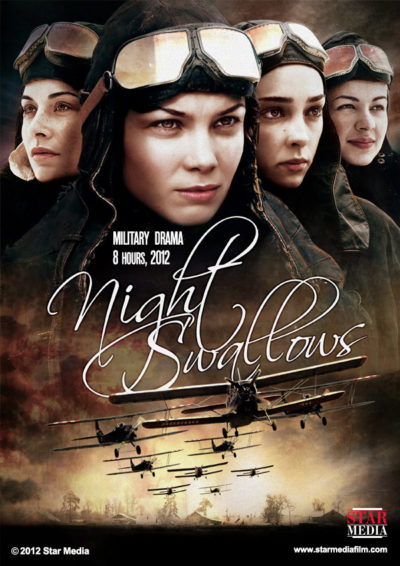 This week, we’ve been focusing on Soviet military heroines of World War II, and as well as
This week, we’ve been focusing on Soviet military heroines of World War II, and as well as 
















 I stumbled across this Russian TV series on Amazon Prime during our annual freebie month, but not until the final weekend, so wasn’t able to watch it there. Happily, I discovered the entire show has been uploaded to YouTube – embedded below, complete with English subtitles – and it’s well worth a watch. It’s set during World War II, and tells the story of two young women, from diverging backgrounds, both of whom are recruited in 1941, somewhat unwillingly. to act as intelligence operatives, during the early day
I stumbled across this Russian TV series on Amazon Prime during our annual freebie month, but not until the final weekend, so wasn’t able to watch it there. Happily, I discovered the entire show has been uploaded to YouTube – embedded below, complete with English subtitles – and it’s well worth a watch. It’s set during World War II, and tells the story of two young women, from diverging backgrounds, both of whom are recruited in 1941, somewhat unwillingly. to act as intelligence operatives, during the early day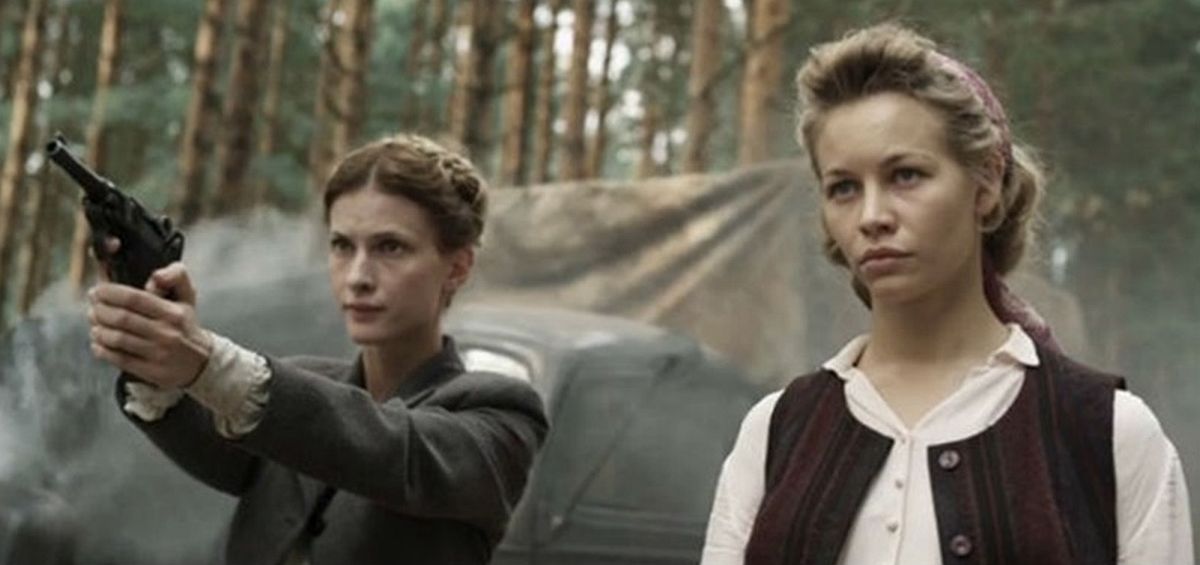
 The half-elven Lady Bethany has shattered the glass ceiling for women in the military forces, rising to third in command, a position she has achieved on her own merit. Of course, it probably didn’t hurt that she is daughter of the goddess Apaxia, although her ancestry causes as many problems as it solves. This is due partly to some pesky secret prophecies which outline – in typically vague prophetic ways, with references to the “Diamond” and the “Viper” – Bethany’s very important place in future events, and partly her estranged twin sister, Sarissa. For she has turned to the dark side of magic, insanely jealous of her sister’s success, with the emphasis squarely on “insanely” there…
The half-elven Lady Bethany has shattered the glass ceiling for women in the military forces, rising to third in command, a position she has achieved on her own merit. Of course, it probably didn’t hurt that she is daughter of the goddess Apaxia, although her ancestry causes as many problems as it solves. This is due partly to some pesky secret prophecies which outline – in typically vague prophetic ways, with references to the “Diamond” and the “Viper” – Bethany’s very important place in future events, and partly her estranged twin sister, Sarissa. For she has turned to the dark side of magic, insanely jealous of her sister’s success, with the emphasis squarely on “insanely” there… Riley Connors (Kane) is a CIA analyst, who quits her job and blows the whistle on secret government surveillance programs. Having pulled an Edward Snowden, she hides out in Colombia, helped by the reporter who broke her story. Her peace is short-lived: a knock on the door proves to be a local cop, working in conjunction with Bill Donovan (Weber), her former CIA colleague and lover. He comes with a proposition. Help them take down a pair of shady Cuban banking brothers (Espitia and Browner) who are suspected of funding domestic terrorism, and she’ll be able to return to the United States, with the slate wiped clean. It’s a very risky proposition, even if her reputation as an enemy of the state might be the perfect “in” to the targets’ organization. But can Bill be trusted either?
Riley Connors (Kane) is a CIA analyst, who quits her job and blows the whistle on secret government surveillance programs. Having pulled an Edward Snowden, she hides out in Colombia, helped by the reporter who broke her story. Her peace is short-lived: a knock on the door proves to be a local cop, working in conjunction with Bill Donovan (Weber), her former CIA colleague and lover. He comes with a proposition. Help them take down a pair of shady Cuban banking brothers (Espitia and Browner) who are suspected of funding domestic terrorism, and she’ll be able to return to the United States, with the slate wiped clean. It’s a very risky proposition, even if her reputation as an enemy of the state might be the perfect “in” to the targets’ organization. But can Bill be trusted either? Oh, dear. A misbegotten concept – Sweet Home Alabama crossed with Rocky – doubles down with shaky execution, and a non-stop parade of painfully obvious cliches in both characters and plot, to startlingly poor effect. As evidence of the first, imagine a film about a man, dumped by his girlfriend, who decides that beating her up is appropriate revenge. This would not exactly be anyone’s idea of comedy gold. But the makers here think that, simply by reversing the genders, it becomes so. They are very much mistaken. I believe I laughed once.
Oh, dear. A misbegotten concept – Sweet Home Alabama crossed with Rocky – doubles down with shaky execution, and a non-stop parade of painfully obvious cliches in both characters and plot, to startlingly poor effect. As evidence of the first, imagine a film about a man, dumped by his girlfriend, who decides that beating her up is appropriate revenge. This would not exactly be anyone’s idea of comedy gold. But the makers here think that, simply by reversing the genders, it becomes so. They are very much mistaken. I believe I laughed once.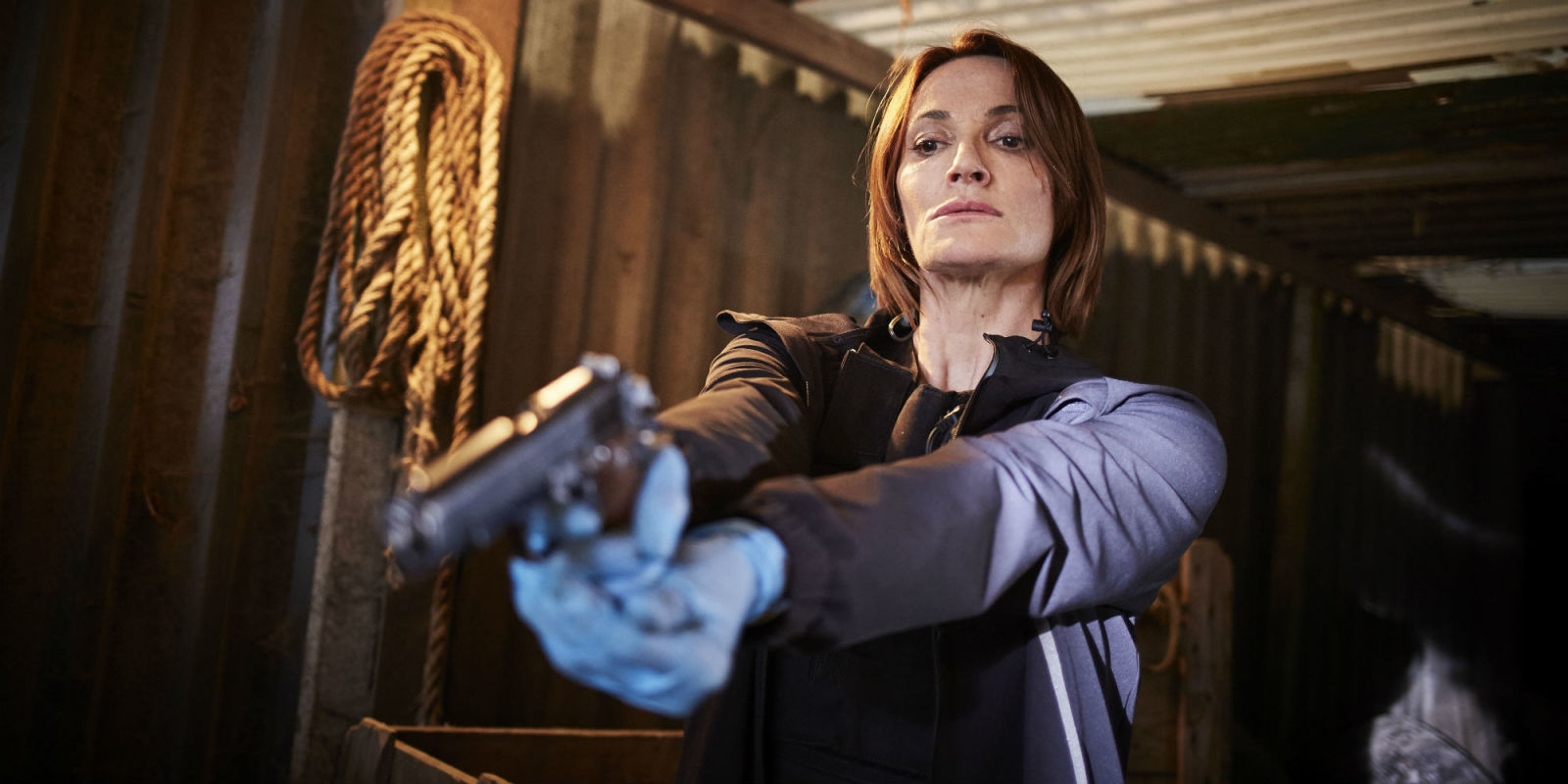 ★★★½
★★★½ I should start by explaining the above tagline. The main monster here is the aswang, a female vampiric creature from Philippines folklore. Its main distinguishing feature, is that after passing for human during the day, at night it splits its body in two, and the top half then flies around, killing people and eating their entrails, using a super-long tongue. There is a secret group, tasked with keeping mankind both safe and unaware of these, as well as any other creatures that go bump in the night. One of its top agents is Mahal (Dennis), who has a particular interests in aswangs (aswangii?), since she blames them for the death of her father.
I should start by explaining the above tagline. The main monster here is the aswang, a female vampiric creature from Philippines folklore. Its main distinguishing feature, is that after passing for human during the day, at night it splits its body in two, and the top half then flies around, killing people and eating their entrails, using a super-long tongue. There is a secret group, tasked with keeping mankind both safe and unaware of these, as well as any other creatures that go bump in the night. One of its top agents is Mahal (Dennis), who has a particular interests in aswangs (aswangii?), since she blames them for the death of her father.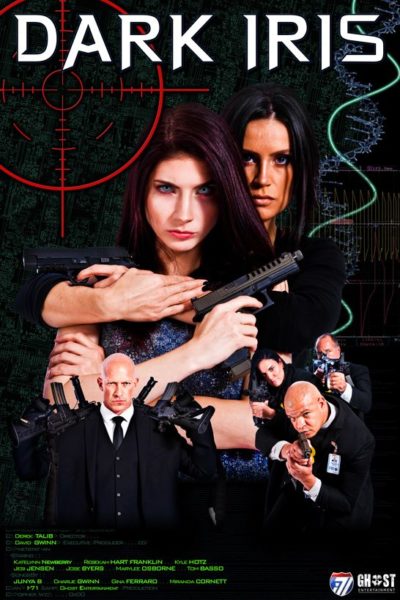 The Hyde Project was a secret government experiment to create artificially-enhanced super-soldiers. Due to difficulty controlling their aggressive tendencies, it shut up shop, but not before 13 of them escaped. They are now being hunted down by a pair of MI-6 agents, Damion Crow (Kyle Hotz) and Lina Petrov (Jensen). Connected to this, somehow, is Iris Black (Newberry). She’s a put-upon barista, with a cheating boyfriend, sleazy boss, alleged stalker – and an increasing body-count of the people around her, the corpses being tagged with religious symbols, in line with the work of an active serial killer. This quickly brings her to the attention of the FBI, in particular Agent Fry (Osborne) and her partner, who have been hunting the killer. They’re not exactly prepared for what they will discover.
The Hyde Project was a secret government experiment to create artificially-enhanced super-soldiers. Due to difficulty controlling their aggressive tendencies, it shut up shop, but not before 13 of them escaped. They are now being hunted down by a pair of MI-6 agents, Damion Crow (Kyle Hotz) and Lina Petrov (Jensen). Connected to this, somehow, is Iris Black (Newberry). She’s a put-upon barista, with a cheating boyfriend, sleazy boss, alleged stalker – and an increasing body-count of the people around her, the corpses being tagged with religious symbols, in line with the work of an active serial killer. This quickly brings her to the attention of the FBI, in particular Agent Fry (Osborne) and her partner, who have been hunting the killer. They’re not exactly prepared for what they will discover.